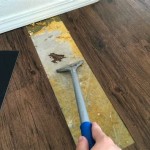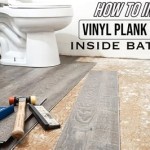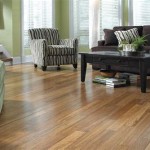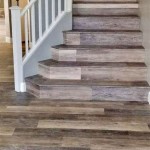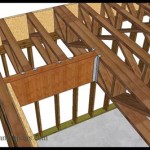Types of Flooring in Construction
Flooring choices play a crucial role in any construction project, as they significantly impact the functionality, aesthetics, and overall ambience of a space. With diverse materials and styles available, selecting the right flooring type is essential for achieving desired results. This article explores various flooring types commonly used in construction, highlighting their characteristics, advantages, and limitations.
Hardwood Flooring
Hardwood flooring, often crafted from oak, maple, cherry, or walnut, exudes timeless elegance and durability. Its natural beauty, inherent warmth, and resistance to scratches make it a popular choice for residential and commercial spaces. Hardwood floors can be finished with various stains and varnishes to accommodate different design preferences. However, they can be susceptible to water damage, require regular maintenance, and are generally more expensive than other flooring options.
Laminate Flooring
Laminate flooring, a cost-effective alternative to hardwood, features a layered structure comprising a core layer, a decorative layer, and a protective wear layer. This type of flooring replicates the appearance of various wood types, stone, or tile, offering versatility in design. Laminate is water-resistant, easy to install, and available in various styles and colors. However, it is not as durable as hardwood and can be prone to scratches and dents.
Tile Flooring
Tile flooring, encompassing ceramic, porcelain, and natural stone, provides durability, water resistance, and easy maintenance. Ceramic tiles are generally less expensive than porcelain tiles and offer a broad range of colors and patterns. Porcelain tiles, known for their strength and stain resistance, are often used in high-traffic areas. Natural stone tiles, like marble and granite, bring unique beauty and elegance to any space but can be more expensive and require specific cleaning and maintenance.
Luxury Vinyl Tile (LVT) Flooring
LVT flooring, a relatively new entrant to the market, has gained immense popularity due to its versatility and realistic appearance. It features a multi-layered structure with a wear layer that simulates wood, stone, or tile. LVT is highly durable, water-resistant, and easy to install, making it suitable for both residential and commercial applications. While LVT flooring offers excellent value for money, it can be more expensive than laminate flooring.
Carpet Flooring
Carpet flooring provides warmth, comfort, and sound absorption, making it a popular choice for bedrooms, living rooms, and other areas. Its diverse textures, colors, and patterns offer ample design flexibility. However, carpets can trap dust, allergens, and stains, requiring regular vacuuming and professional cleaning. Wool carpets are known for their durability and natural resilience, while synthetic carpets like nylon are more affordable and provide excellent stain resistance.
Cork Flooring
Cork flooring, extracted from the bark of cork oak trees, provides unique properties like natural cushioning, sound absorption, and insulation. It's a renewable resource and offers a soft, comfortable feel underfoot. Cork flooring is also relatively hypoallergenic and resistant to mold and mildew. However, it is prone to scratching and can be more expensive than other options.
Concrete Flooring
Concrete flooring, known for its robust durability and versatility, is widely used in garages, basements, and industrial settings. It offers a clean, modern aesthetic and can be polished to a high sheen. Concrete flooring is relatively inexpensive and requires minimal maintenance. However, it can be cold and hard underfoot and may require additional treatments for stain resistance.
Bamboo Flooring
Bamboo flooring, an eco-friendly option, is a fast-growing grass that offers durability and a natural aesthetic. It is available in various colors and finishes and can be engineered for increased durability and stability. While bamboo flooring is a sustainable choice, it can be susceptible to moisture damage and may not be suitable for high-traffic areas.
Rubber Flooring
Rubber flooring, often used in gyms, playgrounds, and other high-impact areas, provides excellent shock absorption, durability, and slip resistance. It is available in various colors and textures and can be easily cleaned. Rubber flooring is also a good choice for reducing noise levels and providing a safe surface for children and the elderly.
Ultimately, the choice of flooring type depends on individual preferences, budget, and the specific requirements of the space. Carefully considering factors such as durability, aesthetics, maintenance needs, and cost will help in making an informed decision for any construction project.

Ppt Floors And Roofs Chandan G Academia Edu

Ppt Floors Powerpoint Presentation Free Id 9704686

Ppt Floors Construction Powerpoint Presentation Free Id 5623348

Ppt Flooring System Details Of Construction S M Rahat Rahman Academia Edu

Ppt Floors Amp Flooring Powerpoint Presentation Free Id 5389164

Ppt Floors Amp Floor Construction Powerpoint Presentation Free Id 1025569

Ppt Best Laminate Flooring Powerpoint Presentation Free Id 7520877

Ppt Flooring System Details Of Construction S M Rahat Rahman Academia Edu

Lec 36 Types Of Flooring 02 Building Construction Technology Civil Engineering

Ppt Unit 42 Powerpoint Presentation Free Id 4851406
Related Posts


